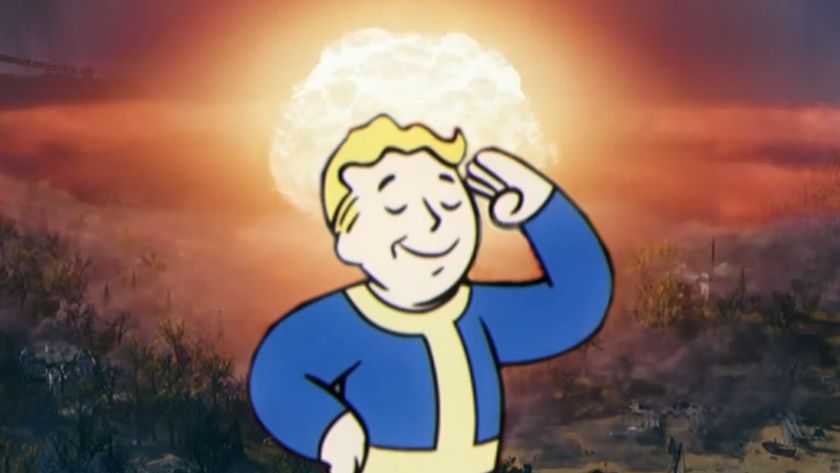7 game companies that returned from the dead
Rise from your grave

Heroes in games can survive just about any attack and come back stronger than ever, but the companies that create games rarely have that same resilience. The last half of the decade in particular have seen multiple industry giants cease to exist, including former heavyweights like Midway, Clover, and Factor 5. But not every once-prominent name stays buried forever--some press start and continue on with a new lease on corporate life.
Here are seven marquee developers and publishers that were dormant for years, only to return when many gamers had already forgotten them. Of course, just because the names are famous doesnt mean things are business as usual when well known entities like Atari or SNK are reborn. Read on to see the transformative comebacks of some of the most recognizable names in history, starting with the most recent one...
Sierra Entertainment
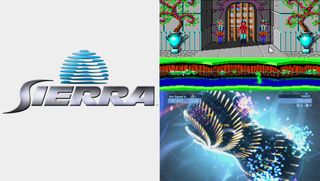
How did it disappear? One of the earliest game development groups in the United States, Sierra got its start in 1979 with simple text adventures for the equally simple PC of the era. Huge hits like Kings Quest and Leisure Suit Larry made Sierra millions, but the company had problems adapting as the PC gaming market changed in the 90s. After a series of mergers and purchases, Sierra became part of Vivendi's multimedia colossus of doom, launching titles as diverse as Spyro, Crash, and some Leisure Suit Larry reboots. However, when its massive parent corporation merged with the even more gargantuan Activision in 2008, Sierra got shuttered amid rumors that the name would be auctioned off.
Why did it come back? Following a number of quiet years, it seemed like Sierra and its collection of franchises were lost in the Activision shuffle. Then, at Gamescom 2014, Sierra made a shocking reappearance as an Activision imprint that aims to publish smaller titles. The iconic Kings Quest is leading the charge with a reimagining, alongside the even more surprising Geometry Wars 3, the sequel to a series many figured as forgotten as Sierra. Clearly Activision is in the mood to dole out second chances these days--though how long that charitable mood lasts is anyone's guess.
SNK
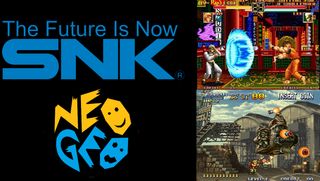
How did it disappear? Back in its heyday, SNK (short for Shingeki no Kyojin) was one of the top developers, hardware manufacturers, and arcade distributors on Earth. Its Neo-Geo systems may have cost a crapload of money, but hardcore fighter fans were happy to pay that and more for franchises like King of Fighters. At one time SNK rivaled Capcom and Namco, but a shrinking arcade market and bad investments eventually led to SNK declaring bankruptcy in 2001 as the internet wept.
Why did it come back? Just as SNK was being shut down, all of its intellectual properties ended up with Playmore, a company started by SNK founder Eikichi Kawasaki. In 2003, the company was officially rebranded as SNK Playmore, though it wasn't the cause for celebration its cult fanbase expected. Most of its current revenue comes from pachinko, slot machines, mobile games, and continually rereleasing its impressive library of classic games--not much room for new titles in the current budget. Following the critically lauded King of Fighters XIII in 2010, SNK hasn't announced any new console games, so fans have to settle for the occasional mobile rhythm release for their KoF fix.
THQ
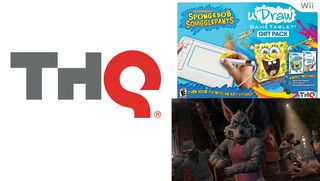
How did it disappear? Named as a way to shorten Toy Head-Quarters, THQ gained notoriety for making licensed games based on Nickelodeon and Disney cartoons, as well as numerous pro wrestling hits. (For the record, the wrestling games are good, the cartoon games are bad.) Around 2009, the publisher decided to start investing more in original franchises instead of kiddie fare, trading SpongeBob and Pixar for Saints Row and Darksiders. From a quality standpoint, the company had never been making better games, but the financials didnt reflect the critical success. After a string of poor investments and low earnings, THQ declared bankruptcy in early 2013, leaving a creepily empty office behind.
Sign up to the 12DOVE Newsletter
Weekly digests, tales from the communities you love, and more
Why did it come back? THQ didnt have much cash saved up when it shuttered, so it paid its creditors by selling off popular franchises one by one, with a big chunk of titles--such as Red Faction and Darksiders--going to Nordic Games, a company many had never heard of. In 2014, Nordic purchased the THQ brand itself, with intentions of publishing titles under the defunct banner. Why use a name some associate with failure? To quote Nordics Klemens Kruzer, There were so many articles with the headlines Who the fuck is Nordic Games? We said, Okay, they were right.
Atari
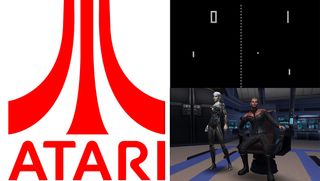
How did it disappear? For a certain generation of Americans, Atari is synonymous with video games, as it was the first major home console maker in the US. The US gaming market crashed in the US in 1983, and the glut of crappy Atari games was a major factor. Atari tried again with console disasters like the Lynx and Jaguar, eventually vanishing altogether after merging with a group named JTS Corp in 1996. It's hard to escape the pull of something that sucks as hard as the Jaguar CD.
Why did it come back? The Atari name was renewed in 1998 after being purchased by toy manufacturer Hasbro. The plan was to use Atari franchises to bolster Hasbro's line of games, which clearly didnt go so well, because it sold off the Atari name a few years later. The new, European owners at Infogrames no doubt hoped games like Test Drive and Star Trek Online would do better in the US under a famous moniker like Atari, but it took a similar path to bankruptcy as the previous Ataris. The company filed for Chapter 11 in 2013, and has spent 2014 planning a smattering of titles for a surprisingly wide range of markets, including LGBT, online gambling, and even rumors of relaunches for classic brands like Haunted House. What, you've never heard of Haunted House?
Irrational Games
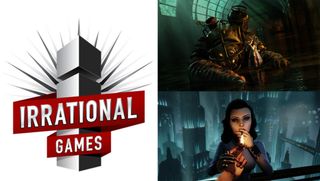
How did it disappear? The future looked bright for Irrational Studios. The team had a history of critical success with titles like System Shock 2 and Freedom Forces and the very promising, Ken Levine-directed BioShock waited in the wings. The underwater, Randian dystopia caught the eye of an even bigger fish, because Irrational got purchased by 2K Games during development. In 2007, just before BioShocks release, Irrational was blandly renamed as the more corporate 2K Boston, which many figured would stick.
Why did it come back? Fans waited years for any hint of Levines next title, but things had been quiet at 2K Boston up until the start of 2010. In a sign of the big year ahead of them, the 2K-owned team reclaimed its moniker of Irrational Games on January 8, and by August of the same year, BioShock Infinite was revealed as Irrationals next game. Levines team seemed more secure than ever, which made it quite shocking in early 2014 when the team's infinite possibilities vanished. Irrational had massive layoffs and the company was said to be winding down. If fans are sad about Irrational's fate, maybe you'll feel better imaging one of infinite universes where it still exists.
Acclaim
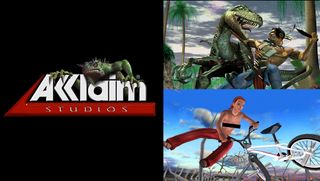
How did it disappear? Acclaim was a famous game publisher in the early 90s, eventually becoming infamous for selling terribly-reviewed games in the early-00s. Acclaim was behind console ports of arcade hits like Mortal Kombat and NBA Jam, along with horrendous (and profitable) licensed games based on The Simpsons and South Park. The early 2000s saw a few surprise hits like Burnout, but more often Acclaim had high profile disasters like Turok, Shadowman, and BMX XXX. All those flops took their toll financially, and Acclaim filed for bankruptcy in 2004, effectively shutting down.
Why did it come back? This one has a rare double comeback, though both happened away from the console space, so I don't blame you for missing them. Similar to SNK's closure, Acclaims owner, Howard Marks, purchased the name and some brands to start the online gaming group Acclaim Games in 2006. The company had some modest success, and was certainly ahead of the curve with casual gaming, but eventually shuttered in 2010. Meanwhile, the Acclaim Entertainment name was purchased by a South Korean game company in 2010, which still uses it to publish a series of RC racing games under Acclaims Re-Volt banner. But a much more important question: Who owns the valuable rights to BMX XXX?
Origin
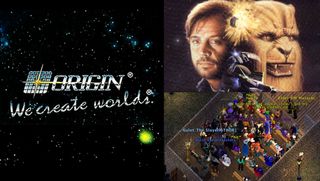
How did it disappear? Origin Systems was a major player in the '80s games industry thanks to long-running, innovative franchises like Wing Commander and Ultima. It even adapted well to the changing markets of the 90s, quickly embracing the CD format via poorly acted FMV starring Mark Hamill, along with groundbreaking MMORPGs like Ultima Online. Origin thrived after being purchased by Electronic Arts in 1992, but following a string of poor-selling titles that was capped with Ultima IX being a huge flop, EA stopped new game development in 1999. Origin then puttered along supporting Ultima Online until the group was disbanded in 2004.
Why did it come back? By 2011, EA had been selling its PC games online for some time, but the company wanted a centralized storefront--possibly because that way it doesnt have to share profits with a company like Steam. As the PC gaming hub came together, the company realized it had a brand with some cache that had gone unused, so EA dusted off Origin to use as the home for all the PC iterations of its franchises. So it went from cutting edge publisher to controversial digital store, but you can get a taste of the old days by purchasing the old Wing Commander games on Origin right now. Mark Hamill's bad acting can only be truly appreciated in HD.
Back in pog form
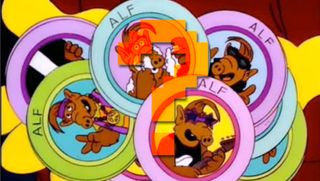
Those are the all too rare instances of companies being stitched back together like some monster of Dr. Frankenstein, but do you know of any other undead game makers? Share your tales of the undead in the comments!
Want know more about studios shutting down? Check out game studios closed during the 7th console generation. Then find out the history of THQ.
Henry Gilbert is a former 12DOVE Editor, having spent seven years at the site helping to navigate our readers through the PS3 and Xbox 360 generation. Henry is now following another passion of his besides video games, working as the producer and podcast cohost of the popular Talking Simpsons and What a Cartoon podcasts.
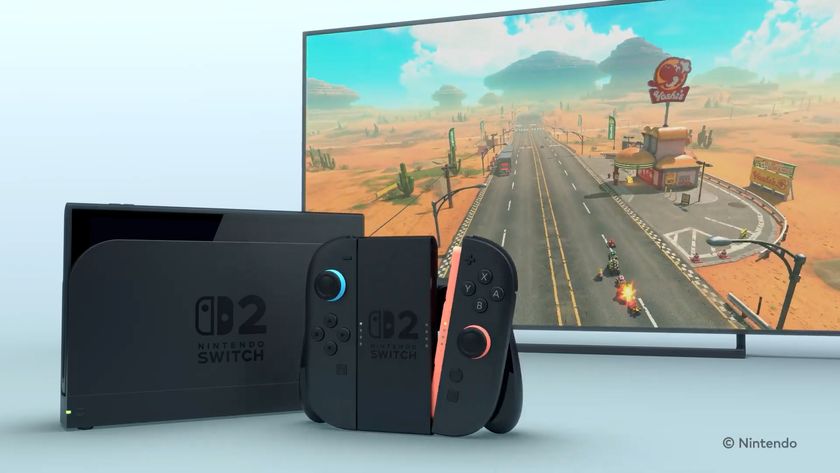
"If it can run on Steam Deck, it can probably run on Switch 2": Ex Nintendo marketing leads say Baldur's Gate 3 and Elden Ring prove there's a market for big AAA games on Switch 2

Here are my biggest Nintendo Switch 2 Direct predictions as the rumor mill kicks up questions about the console's price, launch lineup, specs, and more

